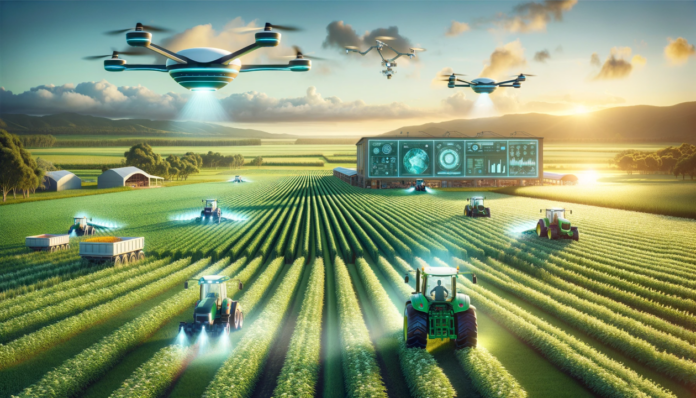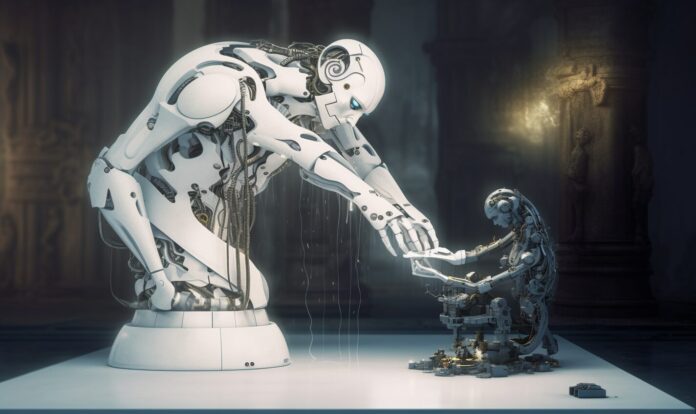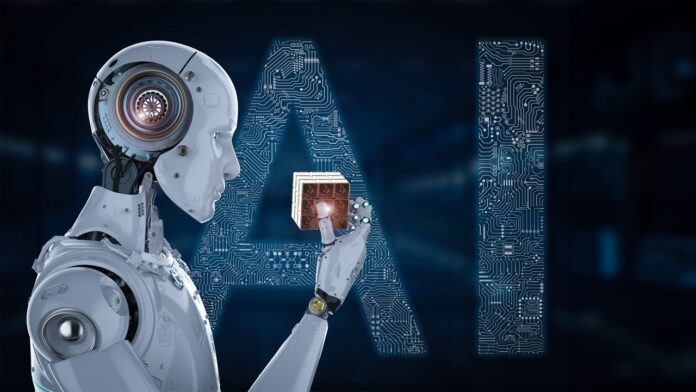Artificial Intelligence (AI) has become a significant part of our daily lives, with mainstream applications like ChatGPT, facial recognition, and autonomous vehicles.
Let us talk about these innovations.
Agricultural Innovations

AI is revolutionizing agriculture, particularly in optimizing fruit ripening processes. Tekniker’s AI-based image processing tool detects defects in bananas, ensuring only the best quality fruits reach consumers.
This tool uses advanced machine learning algorithms to analyze images of bananas and identify imperfections that are invisible to the human eye.
By optimizing the ripening process, it reduces waste and improves efficiency. Farmers can now monitor the ripeness of their crops in real time, making informed decisions about harvesting and distribution.
The innovation not only enhances productivity but also supports sustainable farming practices by minimizing food wastage.
Artificial Smell
The Institute for Bioengineering of Catalonia has developed an AI technique that controls food quality by analyzing aromas at a molecular level.
This artificial smell technology uses AI to detect and interpret complex odor profiles, ensuring the freshness and safety of food products.
By identifying spoilage and contamination early, it prevents foodborne illnesses and extends shelf life. This breakthrough has significant implications for the food industry, providing a powerful tool for quality control and assurance.
It exemplifies how AI can enhance food safety and consumer trust by ensuring the highest standards of quality.
Healthcare and Medical Applications

Prosperia’s AI application is a game-changer in the field of diabetes management. It uses sophisticated algorithms to predict and manage diabetes, providing personalized recommendations for patients.
By analyzing vast amounts of data, including medical records and lifestyle factors, the AI system can identify patterns and trends that indicate the onset of diabetes. This early detection allows for timely intervention, significantly improving patient outcomes.
The AI application continuously monitors patients, adjusting treatment plans as needed. This dynamic approach to diabetes care exemplifies how AI can transform healthcare by providing precise, individualized care that adapts to the needs of each patient.
In Vitro Fertilization
The Eugin group has developed AI algorithms that optimize in vitro fertilization (IVF) processes by determining the optimal ovarian stimulation doses for each patient.
These algorithms analyze a range of data, including hormonal levels and previous IVF cycles, to tailor treatments precisely. By optimizing stimulation protocols, the chances of successful fertilization and pregnancy are significantly increased.
The innovation reduces the physical and emotional strain on patients undergoing IVF, as well as the financial burden.
AI’s ability to provide personalized treatment plans ensures that each patient receives the most effective care, highlighting the potential of AI to enhance reproductive medicine.
Environmental and Scientific Advancements
Fregata Space’s program utilizes satellite data and AI to detect water pollution, providing a comprehensive solution for environmental monitoring. This program uses deep learning algorithms to analyze satellite imagery and identify pollutants in bodies of water.
Detecting pollution early enables timely intervention and mitigation efforts. This technology is crucial for protecting ecosystems and human health, as water pollution has far-reaching consequences.
The AI system continuously monitors water bodies, providing real-time data that supports informed decision-making by environmental agencies.
Reconstruction of Historical Artifacts

The “RePAIR” project uses AI and robotics to reconstruct historical artifacts, such as those found in Pompeii. This project combines AI’s analytical capabilities with the precision of robotics to piece together fragments of ancient artifacts.
The algorithms analyze the fragments, identifying their origins and suggesting possible reconstructions. This technology enables archaeologists to restore valuable artifacts accurately, providing insights into historical cultures and societies.
The reconstruction of historical artifacts not only preserves cultural heritage but also enhances our understanding of history. This application of AI demonstrates its potential to contribute to scientific research and cultural preservation.
Entertainment and Fun
Artificial Intelligence is not just revolutionizing serious fields like healthcare and agriculture; it’s also making a significant impact in the realm of entertainment and fun.
AI-powered tools are enhancing how we create and consume content, offering new ways to engage with media and each other.
For instance, AI-driven algorithms are now being used to personalize music and video recommendations, ensuring that users discover content tailored to their tastes.
AI tools are transforming how we interact with digital media. You can try Undress AI, which can be used to alter and create unique visual content, adding a playful and sometimes provocative element to social media interactions.
These AI innovations not only add a layer of personalization but also introduce creative possibilities that were previously unimaginable. As AI continues to evolve, it promises to bring even more exciting and entertaining experiences to our digital lives, making fun and leisure more immersive and interactive.
Social and Educational Impacts
The Universitat Oberta de Catalunya has developed the Learning Intelligent System (LIS), an AI tool designed to reduce dropout rates and improve student performance.
LIS analyzes student data, including academic records and engagement levels, to identify at-risk students and provide personalized support.
The use of AI in higher education highlights its potential to enhance learning outcomes and support student success through individualized interventions.
Combating Isolation

Takara Tomy’s AI doll, Ami-chan, is designed to alleviate loneliness among the elderly. Ami-chan uses advanced natural language processing and machine learning algorithms to engage in meaningful conversations and provide companionship.
The doll can recognize emotions, respond appropriately, and even tell stories or sing songs. This innovation addresses the growing issue of social isolation among the elderly, providing them with a sense of companionship and emotional support.
Ami-chan’s ability to interact naturally with users exemplifies the potential of AI to improve the quality of life for vulnerable populations. This application of AI highlights its role in promoting social well-being and mental health.
Technological and Industrial Innovations
Inescop’s project uses AI to design comfortable high-heeled shoes, combining fashion with functionality. The AI system analyzes data on foot biomechanics, pressure points, and material properties to create designs that maximize comfort while maintaining style.
By simulating different design iterations, the AI can identify the most ergonomic solutions. This innovation revolutionizes the footwear industry by prioritizing comfort without compromising on aesthetics.
AI’s ability to integrate complex data sets and provide optimized designs showcases its potential to enhance product development across various industries, offering consumers products that meet their needs more effectively.
Coffee Machines with Eye Tracking

Irisbond and Azkoyen Group have developed a coffee machine operated by eye movement, incorporating eye-tracking technology and AI. This machine allows users to select their coffee preferences simply by looking at the options on a screen.
The AI system interprets eye movements, ensuring accurate and efficient operation. This innovation provides an inclusive solution for individuals with mobility impairments, enabling them to use coffee machines independently.
It also enhances the user experience for all consumers by offering a novel and convenient way to interact with technology. This example highlights how AI can make everyday tasks more accessible and user-friendly.
Summary
AI is transforming diverse fields in surprising ways, from agriculture to healthcare to education. These innovations offer significant benefits but also pose ethical challenges.









